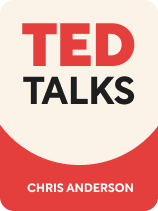

This article is an excerpt from the Shortform book guide to "TED Talks" by Chris Anderson. Shortform has the world's best summaries and analyses of books you should be reading.
Like this article? Sign up for a free trial here .
What’s an explanatory speech? What are some things you should consider when explaining a difficult concept or idea to an uninitiated audience?
An explanatory speech is one where you’re teaching your audience something new or explaining a difficult concept. The key to delivering an effective explanatory speech is to be mindful of your audience’s level of knowledge on the matter in question. To that end, beware of the curse of knowledge: just because something is basic knowledge for you, it doesn’t mean it is so for everyone.
Here are some things to keep me in mind when giving an explanatory speech.
Strategies for Explanatory Speeches
The most common types of public speeches are explanatory speeches. To connect with your audience in an explanatory speech, Chris Anderson, the head of TED, recommends the following strategies:
- Meet them where they are. Reference the current moment or state of the world to make your topic relevant to the audience. Ask yourself, “How can I connect this new information to what they already know and why should they care?”
- Spark the audience’s curiosity. Pose an interesting question without an obvious answer, tell an entertaining story, or show a striking image.
- Introduce terminology and concepts one by one using familiar metaphors, clear examples, and stories. Mix the new with the familiar.
- Do a jargon check. If you’re using words the layperson doesn’t know, you need to either eliminate them or explain them. (Shortform note: Consider the “layperson” to be the average audience member. If you’re presenting to a group of astrophysicists, it’s safe to assume that they have a different vocabulary base than someone who works in a different field.)
| Tips for Explaining Complex Topics Physicist and TEDx speaker Dominic Walliman is an expert at explaining difficult concepts in a simple way. The proof: He writes children’s books and creates YouTube videos for kids to explain quantum mechanics and nanotechnology. In a 2016 TEDx talk titled “Quantum Physics for 7 Year Olds,” Walliman gives four steps for explaining difficult concepts: Meet the audience where they are. (This advice is the same as Anderson’s). Stay on topic. Don’t allow yourself to get sidetracked by tangents or rabbit holes. Think about the one focus of your speech and always move in that direction. Favor clarity over accuracy. When you’re explaining a complex concept, 100% accuracy requires deep dives into mundane details, which can confuse your audience or lose their interest entirely. Walliman says it’s okay to sacrifice complete accuracy as long as the audience understands the majority of what you’re saying. If they want more information afterward, you’ll have the opportunity to educate them further. Tell them why this matters to you. Enthusiasm is contagious, and unless you care deeply about your topic, why should they? |
Beware the curse of knowledge: The better you know something, the harder it is to imagine not knowing it. This is why so many experts give dry, incomprehensible explanations. Anderson recommends you practice your speech on a private audience and ask them afterward if anything was confusing. (Shortform note: Try using the kindergarten test: If you’re able to explain the concept to a 5-year-old, then you’ll be able to explain it to any group of adults. This isn’t to say that you should use the same explanation as you would with a kindergartener, but it shows that you understand how to break a concept down into its most elementary parts and relate them to the world.)

———End of Preview———
Like what you just read? Read the rest of the world's best book summary and analysis of Chris Anderson's "TED Talks" at Shortform .
Here's what you'll find in our full TED Talks summary :
- A nuts-and-bolts guide to public speaking that takes you from the initial idea to your final bow
- TED curator Chris Anderson's public speaking advice on everything from scripting to wardrobe
- A comparison of Anderson's advice to that of other public speaking experts






